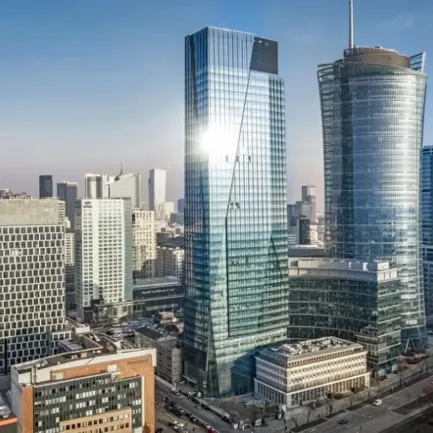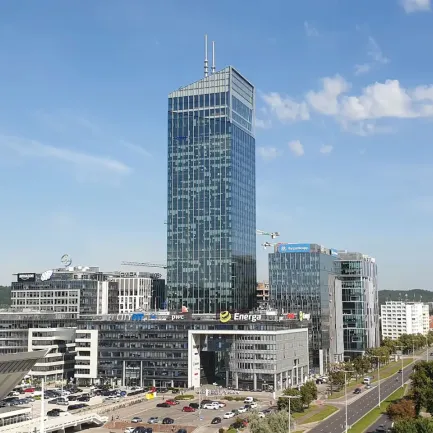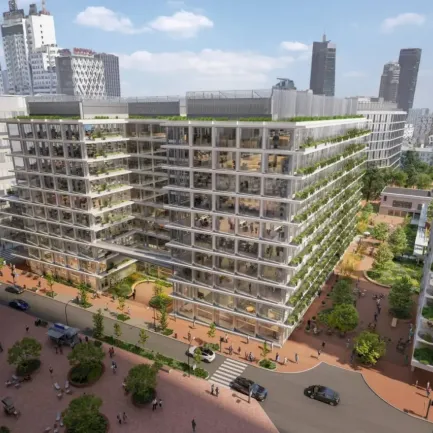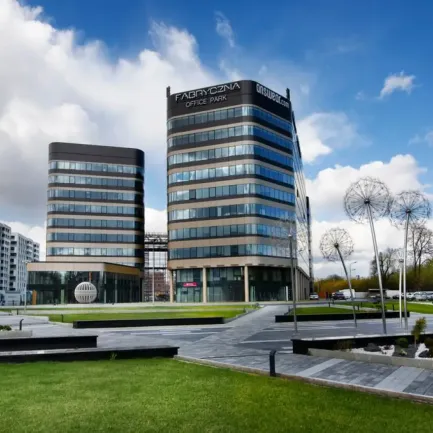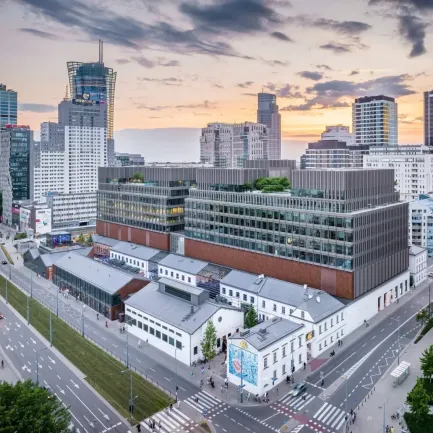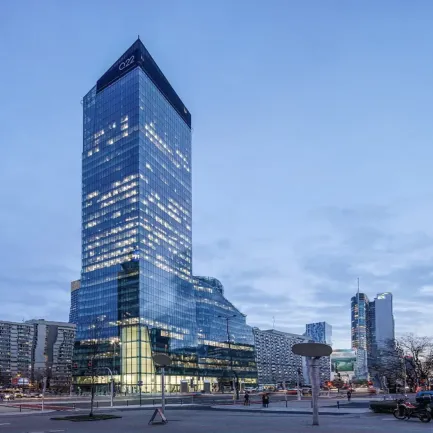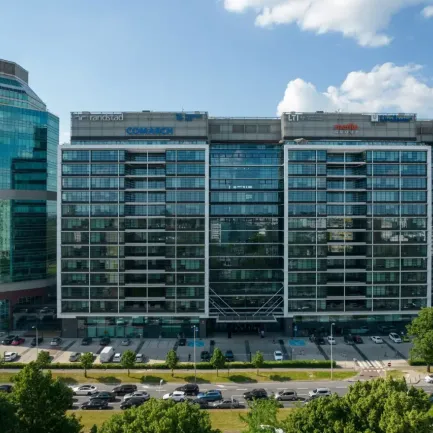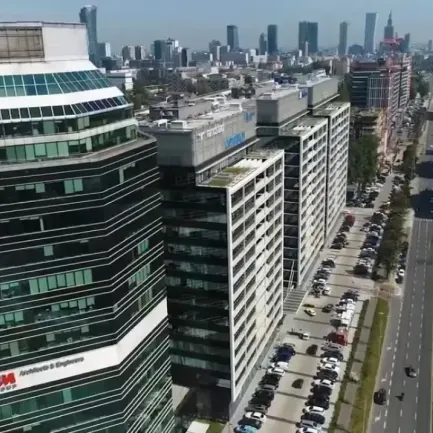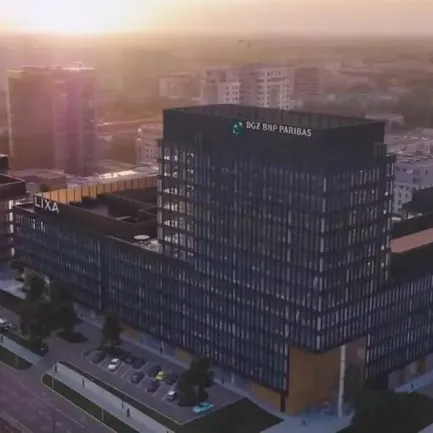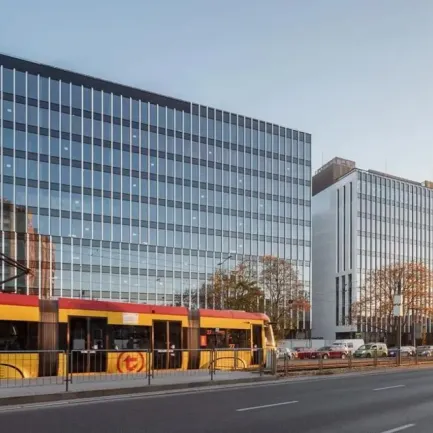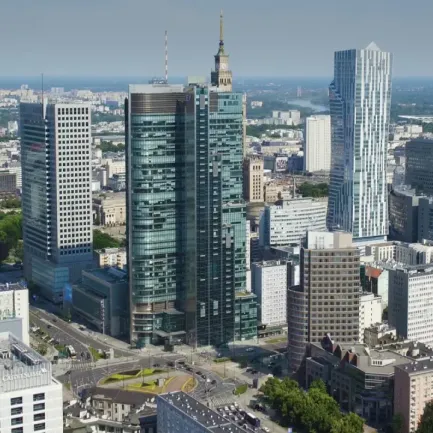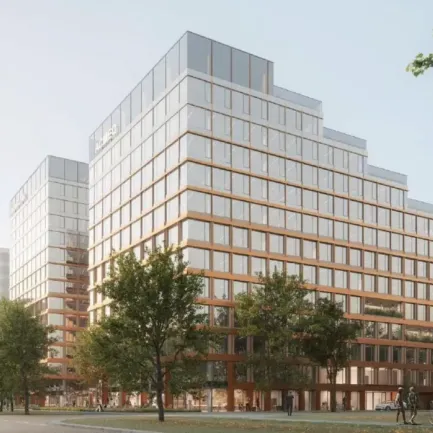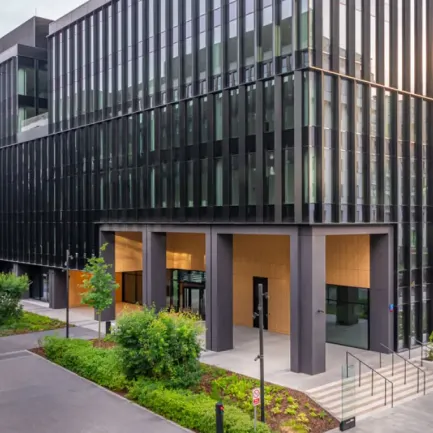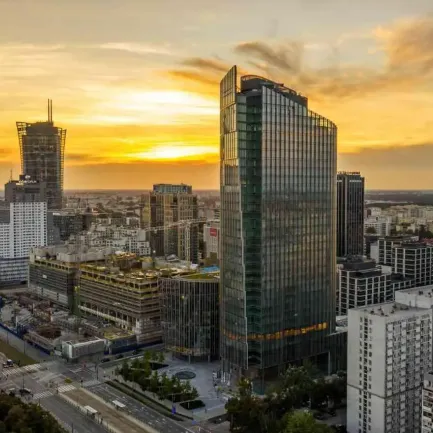According to “Office Occupier – Warsaw Office Market”, a report published by real estate advisory firm Newmark Polska, in 2024, leasing activity on the Warsaw office market continued at a steady level, while developers required significant pre-lets before commencing new projects, which led to a moderate office development pipeline. At the same time, the vacancy rate declined steadily, resulting in shrinking office availability. This trend is expected to persist into 2025.
Total prime office stock in Warsaw stands at 6.29 million sqm. However, with development activity remaining moderate, the Polish capital has recently faced significant supply constraints. In the whole of 2024, just over 104,000 sqm came on stream, marking an increase of more than 71% compared with 2023’s total. Despite this growth, it represents the second-lowest annual result in the history of the Warsaw market, following 2023, which saw approximately 61,000 sqm of new office deliveries. In the fourth quarter of 2024, only one office project was completed: The Form (29,400 sqm) in the City Centre West zone. According to forecasts from Newmark Polska, this year’s new supply is expected to total approximately 170,000 sqm.
“In 2024, the highest concentration of new office completions was in central locations which saw 86,150 sqm delivered, accounting for nearly 83% of Warsaw’s total new supply last year. This trend is expected to continue into 2025, with approximately 85% of this year’s office development pipeline scheduled for completion in the central locations of the Polish capital,” says Karol Wyka, Executive Board Director, Head of Office Department, Newmark Polska.
Development activity in Warsaw remained relatively low throughout 2024, a trend that is expected to continue this year. The start of new office developments in non-central locations depends on securing pre-lets with tenants, while the limited availability of prime land poses a significant challenge for developers in the city centre. In the fourth quarter of 2024, Warsaw’s development pipeline stood at just over 245,000 sqm, down by 10% from the third quarter and by nearly 13% year-on-year.
In 2024, leasing activity peaked, as in previous years, during the fourth quarter, with over 244,100 sqm transacted. This marked an increase of over 35% compared with the third quarter but a 4% decline relative to the final quarter of 2023. Total take-up for 2024 reached nearly 740,200 sqm, slightly below the 746,800 sqm figure recorded in 2023.
“In the three months to December 2024, occupier activity was concentrated in central office locations, which accounted for nearly 54% of all deals. However, non-central locations led annual activity, accounting for approximately 53% of total take-up. By office zone, the City Centre dominated with 26.9% of the leasing volume, followed by the CBD (19.7%) and Służewiec (19.2%),” adds Karol Wyka.
Although pre-lets accounted a significant share of over 21% of total take-up in the third quarter of 2024, renewals dominated both during the fourth quarter and throughout 2024, representing 53.6% and 46% of all transactions respectively. The remaining 54% of last year’s take-up was spread across new leases (36%), pre-lets (7%), expansions (7%) and owner-occupier deals (4%). Last year saw eight leases exceeding 10,000 sqm. The most active tenants on the Warsaw office market were companies from such sectors as financial services (19%), professional services and manufacturing (13% each).
At the end of December 2024, Warsaw’s vacancy rate stood at 10.6%, down by 0.1 pp over the previous quarter but up by 0.2 pp year-on-year. While the total office availability exceeds 664,000 sqm, buildings completed post-2014 account for only approximately 137,000 sqm of unoccupied office space, translating to a vacancy rate of 5.7%. As of last December, offices larger than 5,000 sqm were available in only five office buildings completed after 2014.
Prime office rents stand at EUR 22-27/sqm/month in the city centre and at EUR 16-18/sqm/month in non-central locations.
“With strong occupier demand for office buildings featuring advanced technological and environmental solutions that enhance energy efficiency, optimize costs and support the ESG agenda, owners of such properties are less willing to make concessions in lease negotiations regarding rental rates and incentive packages. Additionally, there is a growing trend towards the refurbishment or repurposing of existing office buildings, resulting in their temporary or permanent withdrawal from the office market,” says Agnieszka Giermakowska, Research & Advisory Director, ESG Lead, Newmark Polska.
About Newmark Polska
Newmark Polska, a Newmark Global Partner, is a member of the Newmark Global Network. As one of Poland’s premier integrated commercial real estate services companies, the group provides conflict-free tenant representation, in addition to capital markets, market research and advisory, valuation, design and project management and workplace strategy services. Newmark Polska is led by Piotr Kaszyński, based in Warsaw, with additional offices in Wroclaw, Tricity and Krakow. The team leverages Newmark’s (Nasdaq: NMRK) global platform, which offers a comprehensive suite of services that seamlessly powers every phase of the property life cycle from offices around the world. To learn more about Newmark Polska, visit: www.nmrk.pl



